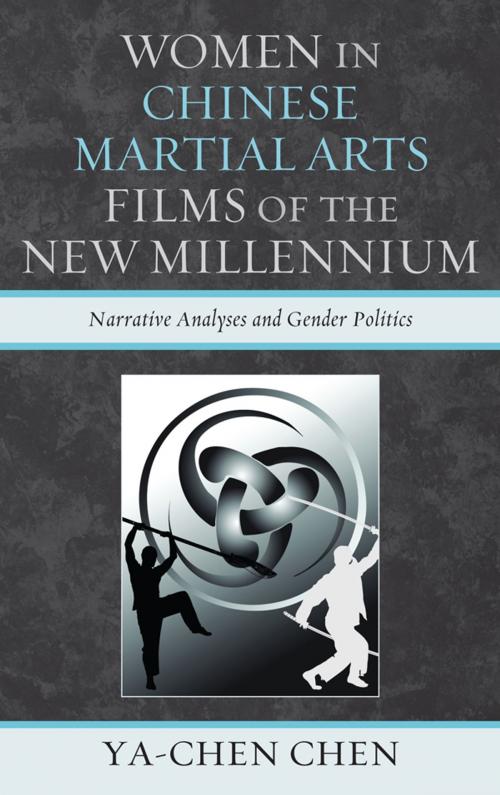Women in Chinese Martial Arts Films of the New Millennium
Narrative Analyses and Gender Politics
Nonfiction, Reference & Language, Language Arts, Communication, Entertainment, Film, Social & Cultural Studies, Social Science, Gender Studies| Author: | Ya-chen Chen | ISBN: | 9780739139103 |
| Publisher: | Lexington Books | Publication: | April 12, 2012 |
| Imprint: | Lexington Books | Language: | English |
| Author: | Ya-chen Chen |
| ISBN: | 9780739139103 |
| Publisher: | Lexington Books |
| Publication: | April 12, 2012 |
| Imprint: | Lexington Books |
| Language: | English |
Women and Gender in Chinese Martial Arts Films of the New Millennium, by Ya-chen Chen, is an excavation of underexposed gender issues focusing mainly on contradictory and troubled feminism in the film narratives. In the cinematic world of martial arts films, one can easily find representations of women of Ancient China released from the constraints of patriarchal social order to revel in a dreamlike space of their own. They can develop themselves, protect themselves, and even defeat or conquer men. This world not only frees women from the convention of foot-binding, but it also "unbinds" them in terms of education, critical thinking, talent, ambition, opportunities to socialize with different men, and the freedom or right to both choose their spouse and decide their own fate. Chen calls this phenomenon "Chinese cinematic martial arts feminism."
The liberation is never sustaining or complete, however; Chen reveals the presence of a glass ceiling marking the maximal exercise of feminism and women's rights which the patriarchal order is willing to accept. As such, these films are not to be seen as celebrations of feminist liberation, but as enunciations of the patriarchal authority that suffuses "Chinese cinematic martial arts feminism." The film narratives under examination include Crouching Tiger, Hidden Dragon (directed by Ang Lee); Hero (Zhang Yimou); House of the Flying Daggers (Zhang Yimou); Seven Swords (Tsui Hark); The Promise (Chen Kaige); The Banquet (Feng Xiaogang); and Curst of the Golden Flower (Zhang Yimou). Chen also touches upon the plots of two of the earliest award-winning Chinese martial arts films, A Touch of Zen and Legend of the Mountain, both directed by King Hu.
Women and Gender in Chinese Martial Arts Films of the New Millennium, by Ya-chen Chen, is an excavation of underexposed gender issues focusing mainly on contradictory and troubled feminism in the film narratives. In the cinematic world of martial arts films, one can easily find representations of women of Ancient China released from the constraints of patriarchal social order to revel in a dreamlike space of their own. They can develop themselves, protect themselves, and even defeat or conquer men. This world not only frees women from the convention of foot-binding, but it also "unbinds" them in terms of education, critical thinking, talent, ambition, opportunities to socialize with different men, and the freedom or right to both choose their spouse and decide their own fate. Chen calls this phenomenon "Chinese cinematic martial arts feminism."
The liberation is never sustaining or complete, however; Chen reveals the presence of a glass ceiling marking the maximal exercise of feminism and women's rights which the patriarchal order is willing to accept. As such, these films are not to be seen as celebrations of feminist liberation, but as enunciations of the patriarchal authority that suffuses "Chinese cinematic martial arts feminism." The film narratives under examination include Crouching Tiger, Hidden Dragon (directed by Ang Lee); Hero (Zhang Yimou); House of the Flying Daggers (Zhang Yimou); Seven Swords (Tsui Hark); The Promise (Chen Kaige); The Banquet (Feng Xiaogang); and Curst of the Golden Flower (Zhang Yimou). Chen also touches upon the plots of two of the earliest award-winning Chinese martial arts films, A Touch of Zen and Legend of the Mountain, both directed by King Hu.















